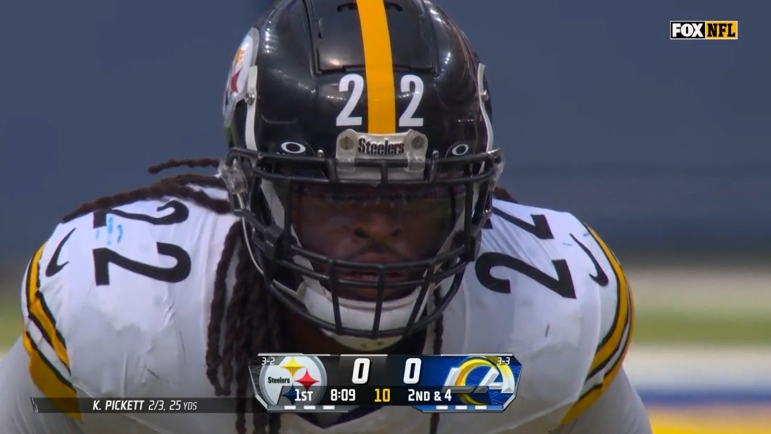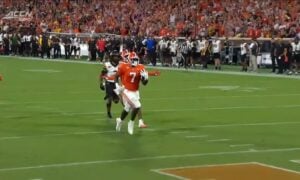Mike Tomlin said it. Omar Khan said it. The Pittsburgh Steelers declined RB Najee Harris’ fifth-year option. Their reasoning was a “business decision.” On the surface, it seems obvious enough. Nothing against the player, they like and welcome Harris to their team, and their calculation was all-football.
But what exactly does “business decision” mean? That’s where I still struggle to understand their explanation.
Does it mean they don’t think Harris’ play is worth the $6.79 million option? Harris is the first Steeler to rush for 1,000 yards in three-straight seasons but he’s not regarded as one of the game’s elite running backs. You can rattle off a quick list of better ones. Christian McCaffrey, a healthy Saquon Barkley and Jonathan Taylor, Jahmyr Gibbs, and Bijan Robinson. There’s even a spirited debate if Harris is the best back on his own team or if Jaylen Warren gets the nod.
Harris has been hindered running behind a work-in-progress offensive line but his main issue is a lack of explosiveness and big-play ability. Since entering the league in 2021, Harris is tied for 50th in runs longer than 25 yards (three) despite being second in carries (834) over that span.
Is “business decision” refer to the position? Are Khan and company embracing the new-age trend of not paying running backs anything more than they have to? Harris came out of the draft as an older back and he has plenty of mileage, coming up on 1,500 carries since coming to Alabama. Concentrating on revamping and upgrading their offensive line, they may view the position as the Dave Bryan special “fungible,” able to put anyone back there who will have success. It’s a plausible and understandable thought.
Does it mean the team is in wait-and-see mode? When the news of Harris’ option being declined was first reported, the tagline that came with it said the Steelers wanted to see how he functioned in offensive coordinator Arthur Smith’s system. A questionable thought – if the team was that concerned about Smith making the run game work, why was he hired in the first place? But that was the report.
Is Pittsburgh trying to protect themselves? The option is fully guaranteed, meaning they’re on the hook for it should Harris get hurt and be unable to play. That’s true of any player on the option but running backs carry more risk even if Harris has been the sport’s most durable runner the last three years.
Or could it be Dave’s suggestion of the Steelers not wanting to technically set precedent if the team plans to extend him long-term, as Khan was hinted at. Picking up the 2025 option and extending Harris later this summer means doing a deal when a player has two years left on their contract. In non-quarterback situations, the Steelers only extend one year out. If true, it would seem like mental gymnastics but Pittsburgh is a team careful not to open Pandora’s box when it comes to contracts and structure.
I know it’s all spilt milk. They made the decision six weeks ago, we wrote plenty about it then, and all that matters now is 2024. But in their supposed explanation for why they turned Harris’ option down, they’ve left more questions than answers.








